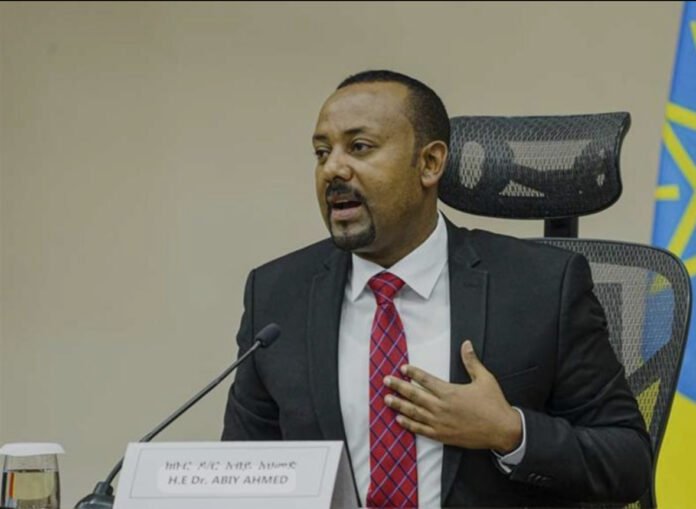By Horn Africa News
ADDIS ABABA – Ethiopian Prime Minister Abiy Ahmed declared on Monday that Ethiopia will “correct” what he described as a “historical mistake” in relinquishing access to Eritrea’s Assab port more than three decades ago, a move that continues to strain relations between the two Horn of Africa neighbors.

In a nationally broadcast interview with Ethiopia’s state television channel ETV on September 1, Abiy highlighted Ethiopia’s long-standing ambition to secure direct access to the Red Sea—an ambition that has once again stirred regional tensions.
“For a thousand years, we have not been able to benefit from the Nile River and the services it should provide. Similarly, we had access to the Red Sea just 30 years ago. That presence was recent, just yesterday in historical terms,” Abiy said, speaking from a location near the Grand Ethiopian Renaissance Dam (GERD). “The mistake made yesterday will be corrected tomorrow, and it is not a difficult matter.”
Ethiopia has been landlocked since Eritrea’s independence in 1993, relying almost entirely on Djibouti’s port for its international trade, which has put economic and security pressure on Addis Ababa. The ports of Assab and Massawa in Eritrea remain the closest maritime outlets for Ethiopia, and regaining access to them has long been seen by successive Ethiopian governments as a strategic necessity.
Abiy’s remarks come against the backdrop of renewed friction with Eritrea. Asmara has previously denounced Addis Ababa’s push for Red Sea access as a “poisonous agenda” aimed at reviving territorial claims, raising fears of escalating hostilities. The two countries fought a bloody border war between 1998 and 2000, leaving tens of thousands dead and relations frozen for nearly two decades.
Although the 2018 peace agreement between Abiy’s government and Eritrean President Isaias Afwerki initially raised hopes of improved ties, cooperation has since faltered. Analysts note that the Ethiopian premier’s latest comments signal a more assertive approach, which could have serious implications for regional stability.
No concrete plan was unveiled on how Ethiopia intends to “correct” the situation, but the statement underscores the government’s determination to pursue maritime access as part of its wider economic and geopolitical strategy. Regional observers warn that any unilateral attempt could further inflame tensions in a volatile region already grappling with conflicts, fragile borders, and competition for natural resources.





